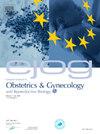在伊朗西部接受体外受精治疗的不孕夫妇中,不孕相关的压力和婚姻亲密关系:一项横断面研究
IF 1.5
Q3 OBSTETRICS & GYNECOLOGY
European Journal of Obstetrics and Gynecology and Reproductive Biology: X
Pub Date : 2025-03-25
DOI:10.1016/j.eurox.2025.100384
引用次数: 0
摘要
鉴于伊朗家庭中生育和生育的基本作用,以及其文化和社会维度,并考虑到关注不孕夫妇婚姻问题的重要性,尽管这一领域的研究有限且矛盾,本研究旨在研究伊朗西部接受体外受精(IVF)治疗的不孕夫妇的婚姻亲密关系和不孕压力。方法于2023年9月1日至12月在伊朗哈马丹市不孕不育中心对117对夫妇进行横断面研究。测量工具为人口统计学特征、Newton不孕症压力问卷和婚姻亲密度问卷。采用方便抽样的方法,共招募了117名符合条件的女性,每对夫妇都是研究的一部分。所有参与者均按要求完成人口统计学特征、牛顿不孕症压力和婚姻亲密度问卷。数据分析采用Stata-17软件,显著性设为0.05以下。结果本研究共调查234例。不孕相关应激域的性别差异无统计学意义(P >; 0.05)。重大infertility-related之间的直接相关性观察压力和年龄(r = 0.55,P & lt; 0.001),婚姻持续时间(r = 0.72,P & lt; 0.001),不孕时间(r = 0.64,P & lt; 0.001),和持续时间的治疗(r = 0.67,P & lt; 0.001)。相反,婚姻亲密度与这些变量呈显著负相关(P <; 0.001)。此外,婚姻亲密行为与不孕压力之间呈显著负相关(r = -0.67,P <; 0.001)。结论本研究结果表明,女性婚姻亲密行为的平均得分显著高于男性。此外,婚姻亲密关系与不孕相关压力之间存在显著负相关。考虑到不孕夫妇心理健康的重要性及其对试管婴儿治疗结果的潜在影响,似乎支持干预和咨询会议可以增加接受试管婴儿治疗的不孕夫妇的婚姻亲密度。本文章由计算机程序翻译,如有差异,请以英文原文为准。
Infertility-related stress and marital intimacy among infertile couples undergoing in vitro fertilization treatment in Western Iran: A cross-sectional study
Background
Given the fundamental role of fertility and childbearing in Iranian families, along with its cultural and social dimensions, and considering the importance of paying attention to marital issues among infertile couples, despite the limited and contradictory studies in this area, the present research aimed to Study marital intimacy and infertility stress in infertile couples undergoing in Vitro Fertilization (IVF) treatment in the west of Iran.
Methods
In 2023, a cross-sectional study from 1 September until December was undertaken on 117 couples at an Infertility Center in Hamadan City, Iran. Measurement tools were demographic characteristics, Newton's infertility stress questionnaire and the marital intimacy questionnaire. A convenience sampling method was utilized to recruit a total of 117 eligible women, each part of a couple, for the study. All participants completed the questionnaires of demographic characteristics, newton's infertility stress and the marital intimacy as required. Data analysis was carried out using Stata-17 software, with significance set at a level below 0.05.
Results
In the present study the number of 234 cases was investigated. There wasn't a significant difference observed in infertility-related stress domains by gender (P > 0.05).Significant direct correlations were observed between infertility-related stress and age (r = 0.55, P < 0.001), duration of marriage(r = 0.72, P < 0.001), duration of infertility (r = 0.64, P < 0.001), and duration of treatment (r = 0.67, P < 0.001). Conversely, marital intimacy exhibited significant inverse correlations with these variables (P < 0.001). Additionally, a significant negative correlation was found between marital intimacy and infertility-related stress (r = -0.67, P < 0.001).
Conclusion
The present study has shown that the mean score of marital intimacy among women is significantly higher than men. Additionally, there is a significant negative correlation between marital intimacy and infertility-related stress. Considering the importance of mental health in infertile couples and its potential impact on the outcome of IVF treatment, it appears that supportive interventions and counseling sessions to increase marital intimacy in infertile couples undergoing IVF treatment.
求助全文
通过发布文献求助,成功后即可免费获取论文全文。
去求助
来源期刊

European Journal of Obstetrics and Gynecology and Reproductive Biology: X
Medicine-Obstetrics and Gynecology
CiteScore
2.20
自引率
0.00%
发文量
31
审稿时长
58 days
 求助内容:
求助内容: 应助结果提醒方式:
应助结果提醒方式:


